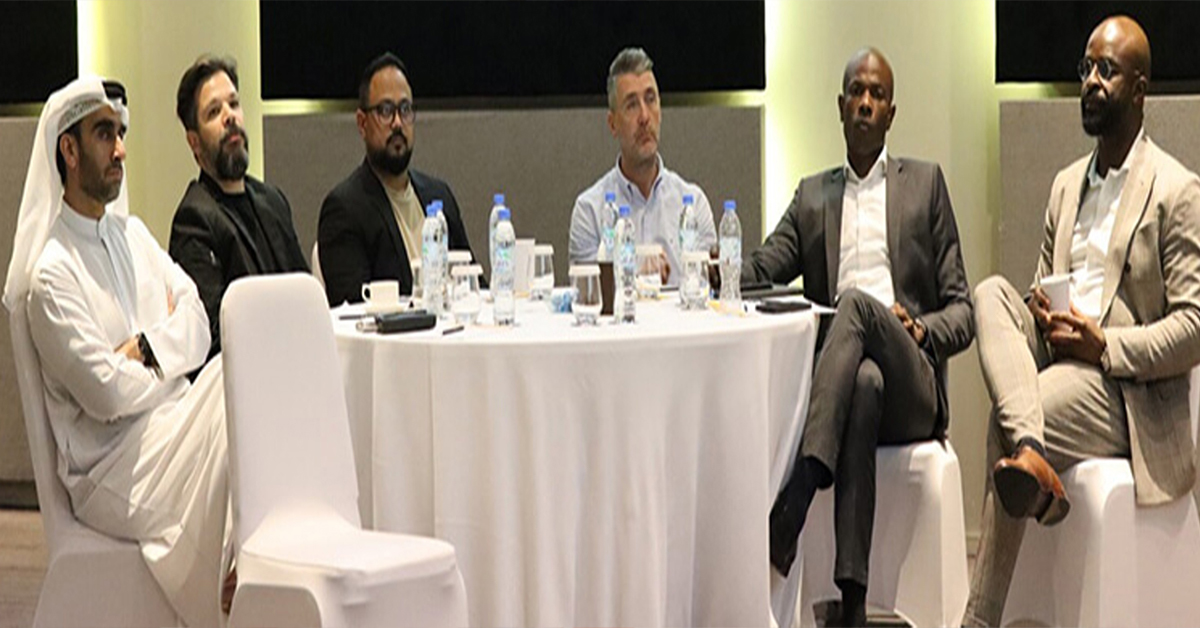As the job market grows more competitive, universities face the challenge of preparing graduates with essential skills to succeed in their chosen fields. To address this, De Montfort University (DMU) Dubai launched its Industry Advisory Boards (IAB) on February 28, 2023, inviting industry leaders from the private sector, government entities, and global businesses to discuss crucial industry needs in academia. This blog post delves into the significance of industry connections, the need for IAB structure in higher education, and how they can help graduates be market-ready.
What is the concept of Industry Advisory Boards?
Industry Advisory Boards are professionals and experts from various industries advising on curriculum development and other aspects of academic programmes. IABs typically include representatives from different fields, such as finance, law, healthcare, IT, and engineering. They collaborate to ensure that research, training, and business activities support and meet institution needs.
The Role of the Industry Advisory Board
IAB provides industry-specific knowledge and practical skills to enhance the skills of graduates in a competitive job market, with access to the latest trends for staying ahead.
Some of the critical roles of IAB programmes include preparing students for leadership positions, fostering critical thinking and problem-solving skills, and promoting ethical and socially responsible practices in the workplace. Additionally, IAB collaborates with industry partners to ensure its programmes are relevant and up-to-date, providing students with the knowledge and skills needed to succeed in their chosen fields.
Bridging the Skills Gap
IAB programmes help bridge the skills gap by ensuring graduates have the skills and knowledge required to succeed in their chosen careers. This is achieved through the development of a curriculum that is industry-focused and practical. Furthermore, our faculty members are experts in their respective fields and bring their industry experience into the classroom. The process ensures that students receive relevant and up-to-date knowledge for their future careers.
Keeping Up with Job Market Trends
Additionally, IAB aims to validate students' expertise in their chosen field and demonstrate their commitment to professional development. These certifications can give students an advantage when applying for jobs or seeking promotions within their industry.
Improving Networking Skills
IAB allows students to connect with experienced individuals and learn about various industries. Vital networking practices can also result in internships, job opportunities, and other career advantages.
Developing Career Prospects
IAB can equip students with valuable skills, knowledge, and practical experience essential for success in their chosen field. It involves providing resources such as career counselling, resume and cover letter writing workshops, and job search strategies. It can help them better prepare for job opportunities and career development.
The Role of Industry Network in Higher Education?
In addition to the IAB, corporate networking plays a vital role in higher education. Universities that have strong business connections can provide students with a wide range of benefits, including:
- Access to internships and job opportunities: Professional associations provide students with access to internships and job opportunities, which can help them gain valuable work experience and kickstart their careers.
- Exposure to industry trends and practices: These connections can expose students to the latest industry trends and techniques. It can help them stay ahead of the competition in the job market and be better prepared for the challenges of their chosen careers.
- Collaboration on research and development: These connections allow universities to collaborate on research and development projects. The process can help universities stay at the forefront of their fields and ensure their programmes are up-to-date with industry developments.
Employability programmes and graduate employability
Employability depends on the graduates' ability to secure employment and advance in their careers after completing their degrees. Graduates need soft skills such as communication, teamwork, leadership, problem-solving, and practical experience to achieve career success. Work-integrated learning opportunities, such as internships, co-op programs, and experiential learning, can be valuable in developing these skills and providing real-world experience.
To improve their employability, graduates can take advantage of industry events and networking opportunities to stay up-to-date on the latest trends and practices in their field and connect with professionals. Building a robust professional network can be essential for career advancement and job opportunities.
Conclusion
Industry connections have become crucial in higher education, ensuring graduates are equipped with industry-specific knowledge, practical skills, and work experience for career success. DMU Dubai provides an industry-focused education that bridges the skills gap, prepares graduates with the necessary skills, and enhances networking opportunities. DMU is committed to forging strong partnerships with industry leaders and providing students with opportunities to engage in real-world projects, internships, and placements. By collaborating with industry partners, DMU Dubai ensures that its graduates are well-prepared to meet the demands of the job market and contribute to the growth of the UAE's economy.
De Montfort University Dubai
Dubai International Academic City
Post Box: 294345
Dubai, UAE
About DMU
Useful Links
© Copyright DMU Dubai 2024

